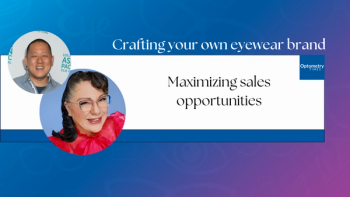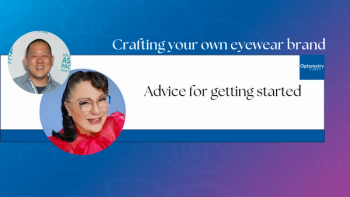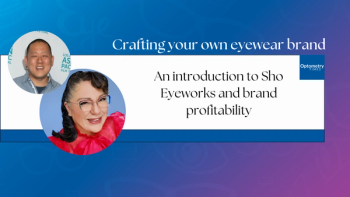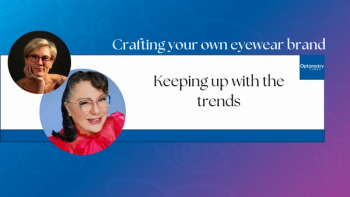
- April digital edition 2022
- Volume 14
- Issue 4
3 practice hacks for success with patients
Important lessons an OD learned from his optometry mentors
When it comes to personal accomplishments, it’s often said that we stand on the shoulders of those who have gone before us. I would certainly agree, while adding that nothing lasting or worthwhile is ever accomplished alone, but rather stems from those who have shaped our lives and invested in us through the years.
Throughout my career, I have been blessed to learn from great classroom teachers and staff doctors, wonderful externship preceptors and residency supervisors, extraordinary colleagues and business partners, and inspiring leaders in organized optometry. Here are a few of the life lessons, professional and personal, that I have found most useful.
Lesson #1:
Pay attention and be efficient, but never hurry.
I had the privilege of completing a residency in hospital-based primary eye care at the Memphis Veterans Affairs Medical Center under the tutelage of Gary Brough, OD, Mike White, OD, and Jim Williamson, OD.
I recognize that doing an optometry residency may not be for everyone. For me though, it was probably the single best decision I have made in my optometric career. Learning under this group of doctors was especially educational.
It is tough to choose, but the singular, most valuable experience from my time as a resident would have to be watching Brough and the other staff doctors provide care in a busy clinic with many challenging patients. It offered priceless learning opportunities to grow as a clinician.
No matter how many patients were waiting, those doctors’ ability to block out distractions and focus on the patient in the chair was exemplary. Every person received the doctor’s best effort and full attention, no matter how busy things may have been outside the exam room or how lousy their day may have personally been going. While that is certainly no easy task, it is what our patients deserve.
In a busy clinic, running between exam rooms is sometimes necessary. Appropriately delegating tasks to properly trained staff is important, but I’m constantly reminded by my residency experience to pause at the exam room door, review the patient’s name, history, and symptoms, and then dedicate to them the time and concentrated effort they deserve in the exam room.
Failing to do so increases the likelihood of providing substandard care, which subsequently risks diminishing the patient-doctor relationship, damaging our clinical reputation, reducing our professional satisfaction, or, worst of all, producing litigation.
Lesson #2:
Refractions matter
After completing my residency, it was an honor to work alongside Richard Dohrn, OD, Chris Cooper, OD, and David Talley, OD, at West Tennessee Eye.
This thriving multilocation optometric private practice gave me invaluable firsthand experience, and I was constantly challenged by Dohrn to become a better refractionist and by Cooper to enhance my contact lens fitting skills. Dr Talley encouraged me to expand my knowledge of ocular disease and to further my clinical skills in performing procedures such as fluorescein angiography, periocular injections, and other office-based optometric surgeries.
Given the practice’s patient base and all we could offer them, it was easy to be enamored with pathology and procedures, but as knowledgeable as Talley was in ocular disease and therapeutic procedures, he was also the first to say, “We can diagnose glaucoma and prevent a patient from going blind, but if we get their glasses prescription wrong, they’ll think we’re bad eye doctors.”
Over the years, I have found that to be true. Not downplaying the critical role we play in medical eye care to preserve vision and/or relieve symptoms of disease and trauma, this truism speaks to the high priority and tangible benefits patients place on having quality vision, which—at times—I have admittedly underestimated.
When ODs take a little extra time to ensure a patient’s refraction is spot on, commit to staying abreast of new and existing options for correcting refractive error, and proactively make recommendations to maximize vision, the patient’s confidence in their doctor to meet their medical eye care needs grows exponentially, as well.
It is rewarding when patients say, “I have never seen this well before!” But even more rewarding is their sustained trust and confidence for the future, which is priceless and also drives word-of-mouth referrals.
Lesson #3:
Keeping existing patients is much less expensive than finding new ones, but sometimes we must let them go
Providence eventually brought me and my family home to Louisiana to join a wonderful practice founded by my business partner, Hunter Bond, OD. He put up with my idiosyncrasies and indulged my numerous mistakes, all while taking me in and teaching me countless lessons about owning and running a successful practice, becoming involved in organized optometry, and finding a good work-life balance.
Like most ODs, I was taught in practice management classes in school that it is much less costly and less time-consuming to keep an existing patient than it is to try to attract a new one. That is certainly true, but what Bond also taught me is that a small percentage of patients just won’t ever be pleased. Allowing this group to mistreat staff and going out of your way to give them everything they want in an effort to keep them returning may result in increased staff turnover, may frighten desirable patients away, and in the end, the patient may still go elsewhere anyway.
If all reasonable attempts to satisfy a patient fails, and/or a patient is simply unreasonable or treats staff inappropriately, it is almost always better in the long run to consider 4 steps for handling the situation.(see above). Keep in mind, however, that when a patient has an ocular condition for which urgent or chronic follow-up is needed, certain legal steps are required to avoid abandoning the patient.
These are just a few of the numerous lessons I’ve learned from my mentors, and perhaps more can be shared in the future. In the meantime, take a moment to remember some of your mentors and revisit what they taught you, then be sure to pass your knowledge on to someone else.
It is definitely a rewarding exercise!
Articles in this issue
over 3 years ago
Case report: 16-year-old presents with asymptomatic glaucomaover 3 years ago
When pharmacies threaten treatment plans, look elsewhereover 3 years ago
Dry eye appears in an unlikely subjectover 3 years ago
How $420 co-op dollars netted $19,000 in revenueover 3 years ago
Case report: the “other” AMDalmost 4 years ago
Business basics: understanding how to manage and code for keratoconusalmost 4 years ago
The ideal LASIK candidatealmost 4 years ago
Adopting new technology without sacrificing practice spacealmost 4 years ago
Contact lens disinfection methods still matterNewsletter
Want more insights like this? Subscribe to Optometry Times and get clinical pearls and practice tips delivered straight to your inbox.




























